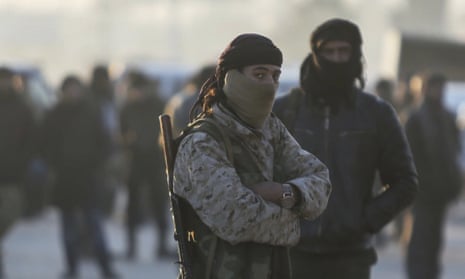The Syria ceasefire agreement brokered by Turkey and Russia this week could bring much-needed respite to a population that has suffered a brutal and bloody war for nearly six years. In theory, this respite will bring an end to the conflict and translate into a lasting settlement. In practice – and at best – it is likely to last only a matter of days or possibly weeks, and may fall apart like previous agreements.
It is the political and military realities on the ground that will decide Syria’s conflict and its prospects of peace and stability. The backdrop to the latest ceasefire agreement is not one of goodwill and trust between the various belligerents. It comes only two weeks after the fall of Aleppo to the Assad regime and its backers, Russia and Iran, who for many months brutally and indiscriminately besieged Aleppo’s population. Hundreds of thousands were forced into submission, their communities decimated.
Unless carefully monitored and implemented, ceasefire agreements can end up being superficial and can distract attention away from intensified military campaigns and human rights abuses. The tragedy is that the evacuation that followed the fall of Aleppo simply displaced the local population to Idlib, the last remaining rebel stronghold that is dominated by more extreme factions within the opposition group.
The deal brokered by Turkey and Russia does not include these factions and, while it is more accommodating of a number of rebel groups in comparison to previous agreements, Russia and Iran have in the past applied loose criteria for the groups that it considers to fall within the parameters of “terrorism” – and do not normally differentiate between the different rebel factions. In other words, this week’s deal could yet again provide them with plenty of political cover to intensify their attacks and worsen the humanitarian crisis in the country.
Other aspects of the deal are also vague. We know little about the details of the control mechanisms that are supposed to enforce its conditions. Both Turkey and Russia may lack the leverage that can force belligerents into accepting the ceasefire agreement.
Turkey has not asserted whether it will deploy any troops to monitor and police events on the ground, which is normally a fundamental prerequisite for ceasefire agreements and one that also allows humanitarian actors to go into conflict areas and do their job effectively. Tens of thousands of rebel fighters have not necessarily agreed to accept the ceasefire and have dedicated themselves to continuing the war against the Assad regime in the wake of the fall of Aleppo.
Russia’s hands are also tied. As Iran’s disruption of the Aleppo evacuation process two weeks ago showed, it is Iranian proxy militias and other Assad loyalists who control the local political and security environment and will ultimately decide the fate of ceasefire arrangements. Yet, Russia has no control over these groups, who do not necessarily have the same long-term political and geopolitical objectives as Moscow. As these militias and other Assad loyalists make further gains, they are likely to grow increasingly assertive and diverge further away from Russia’s sphere of influence.
The ceasefire deal could potentially be a prelude to what many hope will be successful peace talks in Astana, Kazakhstan next month; but without more credible and legitimate brokers, it is more likely to be just another temporary fix that provides a mere breather for those involved.
This week’s agreement did not signal a cessation of hostilities as much as an attempt to engender a political solution to a war with a momentum that considerably favours the Assad regime and its backers. Assuming the regime, or Russia and Iran, do not go for total victory in the coming months, it will still be difficult, if not impossible, for them to convince the opposition and the Syrian people that they are interested in peace and a lasting settlement. Not when their victories have come at great humanitarian cost to the Syrian population – and when tens of thousands of rebels still have the resolve and resources to continue their rebellion in one form or another.
